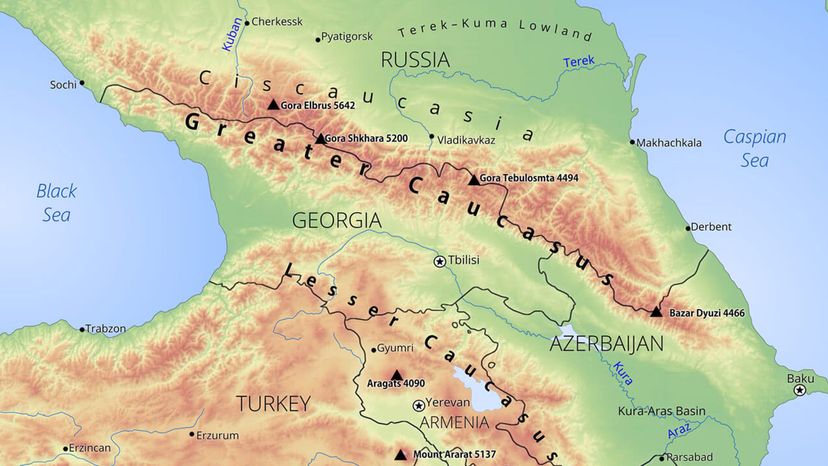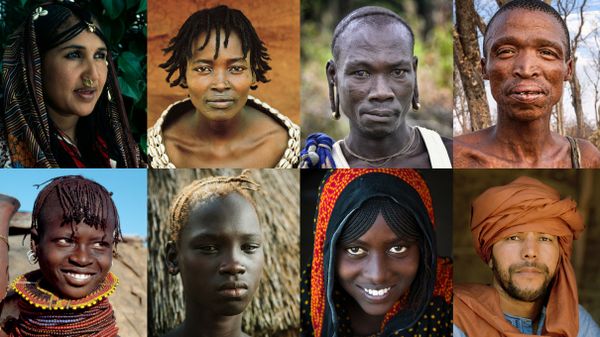"There's no scientific justification for use of that term," Joseph Graves, a professor of nanoengineering and the interim dean at the Joint School of Nanoscience and Nanoengineering in Greensboro, North Carolina, says. "[Caucasian] is actually a 19th-century anthropological idea that was based around a false conception that the origin of the human species was in the Caucasus Mountains."
Mapping the Region
The Caucasus Mountains run from the Black Sea (to the west) to the Caspian Sea (on the East) in an area considered by many as the crossroads between Eastern Europe and Western Asia.
The ranges — two of them, the Greater and Lesser — are due east of Italy (across the Mediterranean, much of Eastern Europe and the Black Sea), due north of Iraq (through a few countries) and due west of India (through a few countries and across the Caspian).
The southern tip of Russia lies to the north of the Caucasus Mountains. To the immediate south is Georgia, a former Soviet Republic. This is where Caucasians — true Caucasians — call home. People from Georgia, Russia, Azerbaijan and Armenia hail from the area.
Blumenbach's Broad Definition
But Caucasians, as first identified by German anthropologist Johann Friedrich Blumenbach and as some still think of the group today, lay claim to a lot more real estate than that.
In 1795, in the third edition of his book titled "De generis humani varietate nativa" (or, "On the natural varieties of mankind"), Blumenbach, building on work by Swedish scientist Carolus Linnaeus and others, used the word "Caucasian" to describe one of his five races of man. He determined each through scientific methods like the measuring of skulls, and tied each to distinct geographic regions.
Caucasians were, as Blumenbach presented them, the "white" race and included people not only from the Caucasus region, but also those from Europe, northern India and parts of North Africa.
(The other groups Blumenbach identified, tied loosely to skin color, were Malaysian, Ethiopian, [Native] American and Mongolian. Years after Blumenbach, scientists found that the earliest humans didn't come from the Caucasus but from Africa, in modern day Ethiopia.)
Though Blumenbach found that the "many varieties of man as are at present known to [be] one and the same species," his work nonetheless was seen as giving scientific credence to the concept of biological race. Over the years, people have abused this notion in order to separate groups (often by skin color) and to declare, through some bastardization of science, the superiority of one racial group over others.



